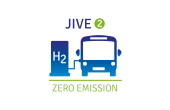This section provides information on the challenges and solutions of a range of preparatory activities that need to be undertaken before a site can commence operating FCBs.
Numerous of the challenges and solutions mentioned in these tables are matters that are best dealt with, or at least planned for, during the Financing and Planning Stage.
As noted earlier, hydrogen supply and hydrogen refuelling processes can fail, leaving the buses without fuel. The problems and consequences often only come into focus during the Commissioning and Early Operations sub-stages. However, they need to be addressed beforehand, during Deployment – which is why they are first dealt with in this sub-section, if not already done so during the Financing and Planning Stage.
Having backup solutions in place means that e.g. test runs of the buses can be carried even if completion of the regular HRS is delayed. Backup fuel supply can also be important during Regular Operations.
Major elements of the Deployment sub-stage are addressed in the following tables. These are:
- A rule-of-thumb timeline for these preparations based on the experiences of one of the JIVE sites and on the experiences in previous projects. At present a 15 months duration of this Deployment sub-stage can be expected under optimum conditions. It is partly governed by long lead times for the delivery of FCBs and HRS. This is expected to reduce as suppliers gather more and more experience and increase production volumes and the new technology becomes part of regular supply chains. However, the local conditions also play a role. If hydrogen is produced on site, the approval process for the HRS is likely to take more time and effort. The same applies when large amounts H2 are stored (Figure 4.1)
- Depot modification/upgrade
- Refuelling Infrastructure
- Route planning
- Awareness Raising and Training
- Useful resources for all sub-stages under Deployment and Operations






